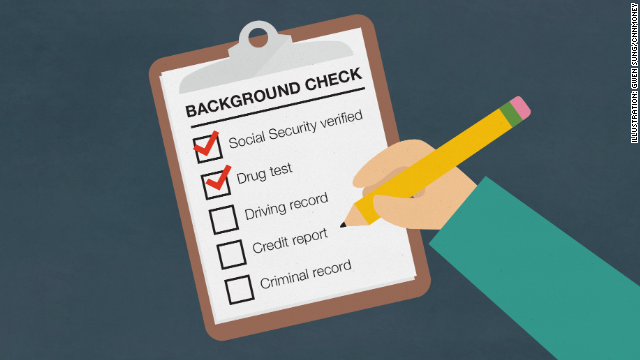SELECT THE WORDS & LEVEL
New Job Requires a Background Check
Everything you need to know about pre-employment background screenings
The application is in, the interview is done, and you’ve received an offer, but your new employer tells you that a background check and drug test must be passed before everything can be final. If this is your first job or the first time an employer has requested this type of information from you, it’s normal to feel uneasy, but there’s no need to worry. You might be wondering the following:
- Why does the employer want a background check?
- What are they looking for?
- How does it work?
- Are drug tests legal?
- What if I have something in my past that might raise a red flag?
Answers to these questions will put you at ease and help you get through the process smoothly.
Why does the employer want a background check?
Today, the vast majority of businesses perform some level of background screening on new employees. The reason is simple: employers want to know if the person they are bringing into their organization and trusting with their resources is being truthful about the information they’ve provided about themselves. They want to protect their organization from violence, fraud, and other harmful activity. While past choices are not a perfect indication of future behavior, they do offer insight and give the employer the opportunity to ask clarifying questions and enter into the employment relationship with complete information. In addition, many employers require background checks to comply with legal mandates. Some positions, including transportation workers or positions that involve working with vulnerable populations, have legally required background checks.
What are they looking for?
The answer depends on the position and the type of background check being run, but generally speaking, employers are looking for two things. First, they want to verify that you are who you say you are. If you say you’re Joe Black, a licensed driver who’s legally able to work in the US, they want to verify that. Second, they want to know if you pose any threat to their business. If you have DUIs on your record or arrests for violence, your employer wants to know. Similarly, fraud convictions are relevant to finance jobs, and sex offenses are relevant to jobs in education.
How does it work?
Once your employer lets you know that a pre-employment background check is required, they’ll provide you with disclosure and consent forms. You may also need to provide additional information such as previous names, addresses, and employers. At this point, your employer will pass along your consent and your info to a third-party consumer reporting agency (CRA), who will perform the background check and provide a report of their findings. Your employer determines what information will be checked and what to do with the information they find; the CRA only conducts the research. Once the report is complete, the employer will notify you of the findings and advise you if they intend to take adverse actions. You have the right to correct errors in the report and provide explanations before decisions are final.
Background checks can go quickly, but a few things can slow them down. For example, any international history in your background will make the process take longer.
You can request a copy of the report at any time. The information is yours, after all.
Are drug tests legal?
The simple answer is that, yes, drug testing for employment is legal. The primary issue is safety. Employers are entitled to a drug test to protect their employees, customers, and resources, and many employers are legally mandated to conduct drug tests for certain positions. Most employers conduct five-panel urine tests that screen for common substances such as marijuana and opioids. You’ll likely be asked to provide your sample at an off-site lab within a certain time window.
What if I have something in my past that might raise a red flag?
The best advice is to tell the truth and be the one to tell it first. The employer should never discover a surprise red flag during a background check. Don’t misrepresent yourself in your resume, and don’t hide past indiscretions.
Take a Deep Breath
We hope these answers have relieved some of your anxiety about a background check. Good luck with your new job.




